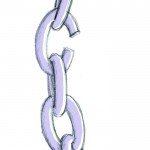Would you believe it? It’s exactly 25 years since Stephen Covey made a name for himself by publishing his business and self-help book: The Seven Habits of Highly Effective People. Here are the first two important habits which you must keep in mind to become a highly effective candidate.
1. When the headhunter calls you
So the headhunter called you? The way we all link up on LinkedIn it was just a matter of time before you too got the call. But now what?
It’s absolutely fine that you feel a sense of pride being sought after; on the other hand, you don’t want to run around the office with your arms up and let your supervisor and colleagues know who just called you. Jealousy is always a bad thing and this may even lead to suspicion by your superiors that you are contemplating an exit in the near future.
To avoid disappointment and get your expectations right, always ask the recruiter if their assignment is a retained search or a contingency job. Retained means that a client has paid the executive search firm money up front and is working closely with the headhunter on an exclusive basis.
 Contingency then? It means that the recruiter can only invoice their client if one of their candidates is employed by the client. It’s like real estate agents who only get commission if they close a deal so sell sell sell is the name of the game. The more resumes which go out to a client the better chance the contingency recruiter has to make money.
Contingency then? It means that the recruiter can only invoice their client if one of their candidates is employed by the client. It’s like real estate agents who only get commission if they close a deal so sell sell sell is the name of the game. The more resumes which go out to a client the better chance the contingency recruiter has to make money.
Ask the recruiter about the next step should you both agree to move forward. If the recruiter wants to meet you first, that’s a good sign, but there is a but. Ask where such meeting will take place since many smaller firms and even companies without license from Ministry of Labour tend to suggest meetings at coffee shops and hotel lobbies. Believe me, this is not serious and you don’t want to sit in a public place talking about yourself, your career, achievements, compensation, private affairs and what have you.
Protect your resume and reputation as it was your social security number. Too many humbugs will broadcast your personal details unsolicited to make some quick money.
 2. Greatest resume mistakes ever
2. Greatest resume mistakes ever
Having a great resume is the single most important part of your job search? Because if your resume does not excite and impress anyone, you will not be invited for an interview. And obviously, if you can’t get the interview you will never get the job. Agree?
Here’s the scary news. Your resume will at best get a quick 20 seconds glance, if that much. The resume either stays on the desk (or computer) or it goes the paper shredder way (or delete button). Sorry but don’t shoot the messenger. If you send a CV with page after page, instead of a summary of the CV – which we call resume, we will guess you are from the stone age, lazy or perhaps have never bothered checking on what is best practice in resume writing.
I know that accountants feel more at home with Excel than Words and marketing people can’t control themselves when given the opportunity to paint themselves in a PowerPoint presentation. But please, always use a Word document. All of you please.
Whatever work experience you have which is over 15 years ago, we don’t want to know. It’s a life time ago and what you learned in school or in your first job have no bearing on who you are today. Instead, write one or two lines like this: Prior experience includes so and so.
Clichés like dynamic, self-motivated, visionary, and similar generic traits say nothing about what you are capable of. They are useless and just take space from where you could add more examples of your achievements.
Best resume writing practice is to have your current job at the top (page one) and then move backwards to page two, finishing with your first ever job.
Please do not use a generic resume to any and all types of jobs you apply for. The resume is not a one-fit-all document but must be a presentation that has been prepared for that specific employer and job.
If you have periods without work, do not be tempted to include such period in one of the jobs you have held. During reference checking with previous employers it will surface and kill you.
No matter how beautiful or handsome you are, do not attach a photo in your resume. If you do, there is just one more reason for the reader of your resume to disqualify you. Likes and dislikes are strange animals and some just hate beautiful people.
Do not make the mistake of copy/paste the often generic meaningless statements of a job description. Instead, tell us what you did with the responsibility. Present your achievements or accomplishments.

